The Politics of Logic

Interview by Richard Marshall
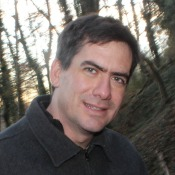
'... it seems to me that if we want to get at “metaphysical structure” we need to say something about what kind of thing that could be and how it relates to the logic of truths, and this has to go beyond just appealing to naturalism or the continuity of philosophy with natural science. Just appealing (for example) to primitive “naturalness” or “carving at the joints” doesn’t seem to me to say much. I’m also not sure we’re trying to find out “facts about the world” or what that would mean, if it’s not what physicists or other natural scientists are supposed to be doing, rather than philosophers or logicians.'
'I want to say that my point in appealing to Russell’s paradox and Gödel’s proofs -- and maybe better even than those to Tarski’s results – is not to say that a formalism of the whole, or a formalism that will be complete in relation to its intended domain, is impossible. It’s rather, and this is important, to say that if it is complete in this sense it will be inconsistent.'
'... realism is a matter of the objective determination of claims as either true or false, tertium non datur . This is good both because it brings in the structure of truth centrally and explicitly, and because it isn’t in any sense a formulation in terms of the opposition between “subjects” and “objects” or the “mind-dependence” or “independence” of things. Rather than presupposing that kind of dichotomy, I find it much more useful to think about it in Dummett’s way where we are essentially considering whether there is always a way that sense is determined by us through the contingency of our practices or our abilities – which is to allow that truth goes only as far as we have determined or are in an idealized way capable of determining given our epistemic capacities (the anti-realist view) – or to refuse any such picture and say truth is determined just by the way things are and that sense goes as far as this. '
Paul Livingston is interested in the philosophy of mind, philosophy of language, phenomenology, metaphysics, and political philosophy from a perspective grounded in the history of twentieth-century philosophy, analytic and continental. Here he discusses new collective directions or ways of living that make sense, realism, the politics of logic, why he's not a linguistic idealist, set theory and ontology, the formalism of formalism, the Buddhist tradition, Badiou, the foundations of authority and the constitution of power, Carl Schmitt, the importance of Frege, Russell, Godel and Cantor, truth and temporal change, realism about time, being and their relationship, sense, realism and ontological difference, and Michael Dummett.
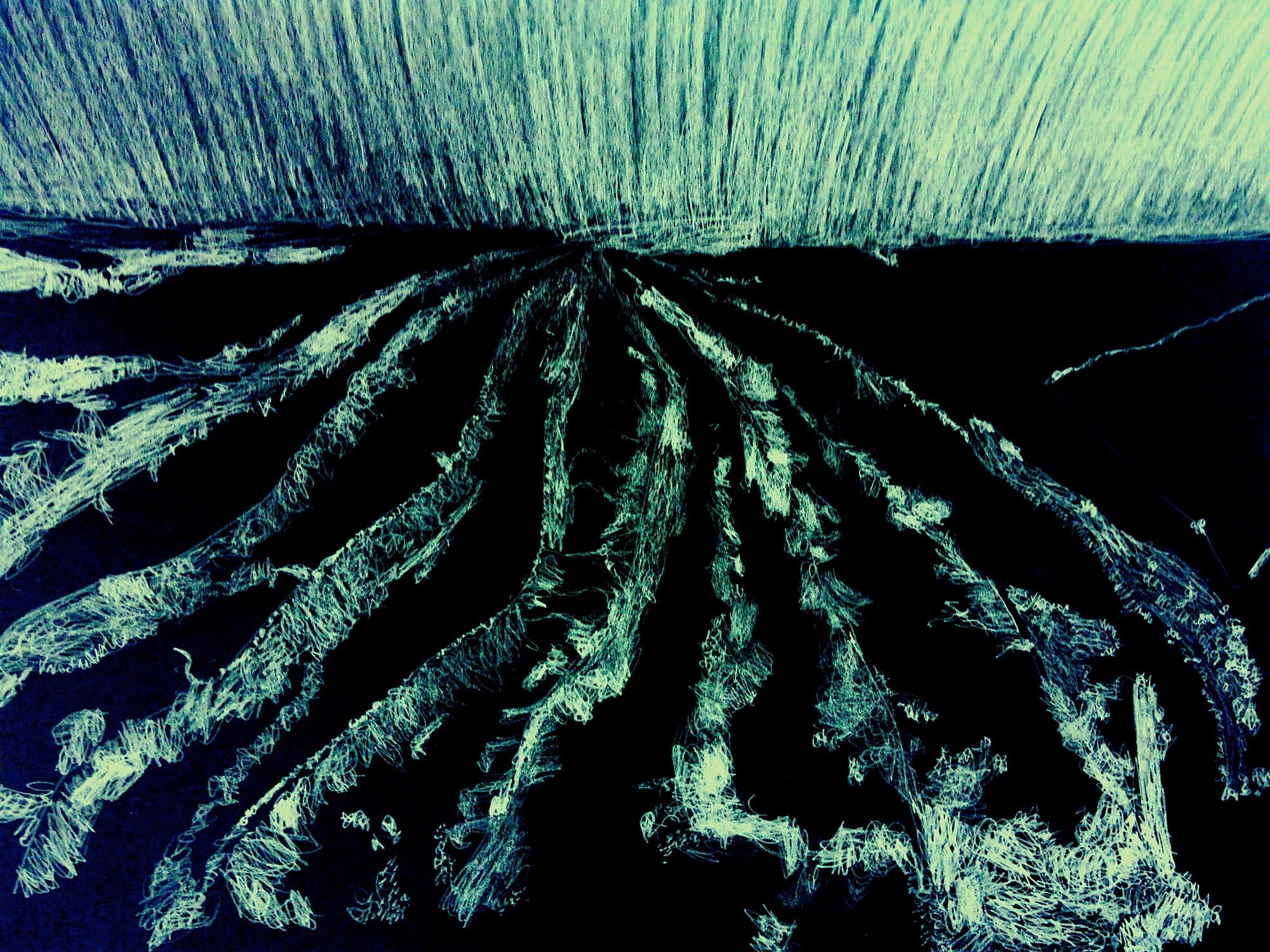
3:16: What made you become a philosopher?
Paul Livingston: Well, I almost didn’t make it. I read Nietzsche and Marx in high school – I wasn’t completely committed to philosophy then, but interested. When I went to Harvard, though, everything seemed to be dominated by post-Quinean analytic philosophy and nobody was there really to explain what the point was, so it was hard to see. Certainly this was partly my fault: I took classes with philosophers whose work I later came to appreciate very much, but I wasn’t old enough or mature enough to really figure out the back story or make sense of it all. And the pedagogical situation in general was pretty poor, with most of the actual teaching (as opposed to just lecturing) being done by TAs. A lot of the students seemed more interested in law or policy jobs than actually in philosophy itself. So several times I almost dropped out of the major. In my senior year I happened to take a class with Stanley Cavell and that kind of turned me around. That was when I was also first reading the late Wittgenstein and I guess, in retrospect, starting to think that philosophy continuous with analytic philosophy could really say something relevant to how we live and think. And at the same time that was my first introduction to contemporary “continental” philosophy – in that class was the first time I read Derrida, for example. So that was what sold me, or at least convinced me to go on to graduate school. It was later, working on my dissertation, that I think I figured out that analytic philosophy itself has an incredibly interesting history and deserves, when understood in its own constitutive terms, to be treated as one of the great and vital intellectual movements of our time even now.
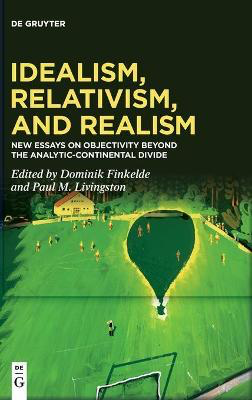
3:16: I think to get a grip on what your philosophy is about it will be useful for you to orientate us a little as to the primary concerns and the context out of which you work. So could you give us a brief overview of this context, perhaps sketching the ideas that emerge from in particular Markus Gabriel’s ‘New Realism’ and his ontological pluralism and ‘fields of sense’, and how all this seems to breach the continental/analytic divide somewhat even though it reaches back through what has been seen as a continental tradition from Kant through the German idealists to phenomenology and onwards? It seems in your work you want to avoid the pious religiosity of hermeneutical practice and the implications of that, on the continental side, and the empiricist naturalism of the analytic and the implications of that focus too. Can you say what you understand these implications to be?
PL: I think my work, these days, is about finding new collective directions or ways of living that make sense – ways of going on, as Wittgenstein might put it – given that we can’t appeal any more to theological foundations or technological solutions, and that capitalism is destroying the earth. That set of problems of collective life or how to go on is the significance of “politics” for me – maybe there should be a different word, since it’s certainly not what people call “politics” for the most part today – and also maybe of education and even of a kind of “ethics” (with appropriate scare quotes around that term). It’s a possibility that is extremely fragile, and more and more threatened today, but maybe there is some work of keeping it alive or at least keeping some remnant open for an unknown future to come. I don’t know from that perspective how or whether the idea of having or giving an overall “ontology” enters in. But in Politics of Logic it seemed to me that since every contemporary form of life is determined in some relation to problems about the world or the whole, you could understand the possibilities better – using a concept and structure from Badiou -- in terms of different possible orientations toward that whole.
When I wrote the book I didn’t know anything much about Gabriel or the so-called “new realisms”. But in terms of the framework, Gabriel represents, with Badiou, what I called there the “generic” orientation. That’s the one that denies the existence of the world – that’s maybe Gabriel’s central claim as I understand it – and instead affirms an open plurality of more or less concrete worlds, or relatively enclosed totalities. In that way the generic orientation affirms the incompleteness of anything we can see as or call the totality, while maintaining usually the overall consistency of the whole picture (though I’ve recently learned that Gabriel is also willing to countenance inconsistent objects, or at least leave open that question). As I argued in the book, I think the generic orientation has some limitations, especially when it comes to understanding the contradictions that structure global capitalism, but one thing I agree emphatically with Gabriel on is his realism about sense.
For me, the importance of realism in general is that we need an understanding that doesn’t put humans at the center of the universe, so I think we need to understand that there’s a reality independent of us and our interests. And as for Frege – Gabriel gets this from him too, I believe – that means understanding truth in such a way, even linguistic truth, that there are senses or modes of presentation of things that are objective and not just constructed by us. And as people have pointed out recently that makes for a different kind of inheritance of continental philosophy and especially of phenomenology’s concern with sense, ever since Husserl. And of something like the project of a paradoxical – but still realist -- logic of sense, as for example in Deleuze. So that means we have to go into the structure of truths and try to understand formally what they are and how they are related to presence or their presentation. I think we definitely get resources here from classical phenomenology, as also from structuralism. I don’t think it’s naturalism because the main tools to do that are formal-scientific and reflective rather than natural-scientific – and of course, given the anti-psychologism that Frege, Wittgenstein and Husserl (and Heidegger) all for good reasons share, it’s not a matter of psychology or neuroscience either.
At the same time, obviously, it’s not doing the standard continental practice of interpretation and hermeneutic deference to the text. Kant is important for this work because he’s the first one to invent self-reflexive critique, and to formalize to some extent the logic of our relationship to the world and the other “transcendental ideas” as a dialectic of illusion. The transcendental dialectic and especially the antinomies are the first clue, so to speak, that there’s a structural incommensurability between thinking and being, that any supposed correspondence between them is something constructed or produced, and to that extent fake – even though Kant himself betrays this insight by holding out for a thinkable but not knowable thing-in-itself. Hegel and German idealism aren’t as relevant, insofar as they ultimately assume the thinking-being or substance-subject problem can be resolved in a unitary way. To be honest, I’ve never understood why Hegel is so popular these days. As philosophers as different as Russell and Althusser pointed out in the twentieth century, he seems to be committed to an overall logic and teleology of historical necessity, and reconciliation on the level of the organic whole, that we have since learned, or at least should have learned, to see past.
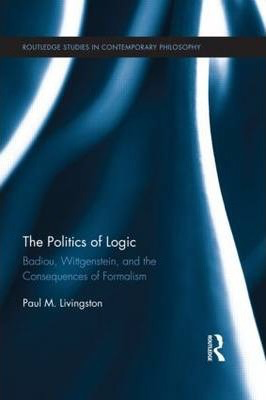
3:16: In your ‘Politics of Logic’ are you arguing that there’s a fundamental link between formal logic and political and social organization and that to do this we must take seriously the linguistic turn in twentieth century philosophy? Can you say something about this and what you take to be crucial features of this linguistic turn? In doing this can you comment on Tim Williamson’s notion that the linguistic turn then became the conceptual turn which suggests that language isn’t quite as important, although of course Williamson himself argues for discovering facts about the world through formal investigations.
PL: I think maybe “fundamental link” is too much – if I said it in the book I shouldn’t have, since I’m not sure what “fundamental” would mean there – but at least I want to say the logical structures illuminate the political ones. Most basically that’s because we can look to the logic, or set theory, to get an understanding of the formal dynamics of unity, totality, and limits, and these are (I wanted to say) indicative of some of the political and political-economic structures as well with respect to these things. The point of following the linguistic turn here is, at least in part, that language is the medium of our practices, and so the site of any possible understanding or self-awareness of what those practices are up to. That’s where we can go to work in clarifying and reflexive critique: as in the late Wittgenstein, we can get from the work of reflecting on language or grammar the kind of perspicuous representation we normally lack, and suffer from the lack of. This kind of reflection would also at least include reflecting on logical structures or formalisms in the technical sense, since these are techniques of language and exist as part of it. Or, like Davidson, we can formalize the structures of truth and meaning for a language to help see how these shed light on each other – even if we don’t think the project of actually completing the “formal semantics of natural languages” is likely to succeed, we can use that kind of illumination to gain insight into what the logical formalisms are formalisms of : for example, the relationship of truth and predication along with related semantic phenomena such as satisfaction and reference, as Davidson shows in his last book.
Methodologically, I guess the best argument for the linguistic turn in relation to formalization is that if we’re going to formalize at all it’s hard to see where the formalizations could come from if not from our language or its logic itself. Certainly we shouldn’t have to do without the logical and reflective tools that we’ve gained through the linguistic turn in the twentieth century, and that includes not just formal calculi in the strict sense but also broader methods like logical analysis and ordinary language philosophy. Of course I know that many these days -- especially those who take themselves to be doing “metaphysics” in some positive sense -- like to see themselves as moving beyond the linguistic turn. One idea there is that we should really be theorizing the phenomena or realities themselves, as opposed to just the words or concepts that stand for them. It’s also, I guess, that Kripke showed in Naming and Necessity that we can study essences and identities in a natural-scientific way instead of just studying concepts or our language. But I don’t think that Husserl or Heidegger or Wittgenstein are interested in only the words or concepts, not anyway in a way that excludes that the real point is to think about and illuminate the things themselves.
At any rate it seems to me that if we want to get at “metaphysical structure” we need to say something about what kind of thing that could be and how it relates to the logic of truths, and this has to go beyond just appealing to naturalism or the continuity of philosophy with natural science. Just appealing (for example) to primitive “naturalness” or “carving at the joints” doesn’t seem to me to say much. I’m also not sure we’re trying to find out “facts about the world” or what that would mean, if it’s not what physicists or other natural scientists are supposed to be doing, rather than philosophers or logicians.
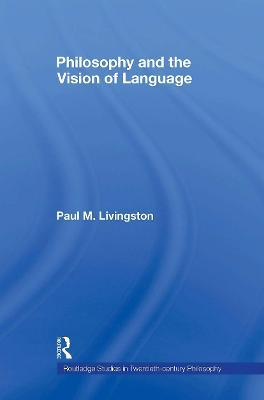
3:16: When you say that you don’t assume any simple outside to language what do you mean? It sounds at first blush as anti-realist in the sense that you don’t think we can make sense of even a plurality of fields of sense in Gabriel’s sense of them picking out facts that exist independently or prior to language, concepts etc . Are you saying discourse is all and that somehow discourse creates ontology or are you making the German Idealist point that reality is accessible and that nothing is in principle unknowable, contra Kant et al?
PL: No, I don’t mean that to be a declaration of linguistic idealism, or any other kind of anti-realism. It’s just to say that it’s not methodologically helpful at this point to think that language ultimately borders on some kind of “beyond” that is in principle inexpressible, whether this is thought as a transcendent ineffable, as in neo-Platonism, or just the sensory or practical, as in some contemporary forms of empiricism or pragmatism. Of course in response to the twentieth century empiricist formulation of this claim we have the Sellarsian and Wittgensteinian critiques of the Myth of the Given and private language. Sellars suggests that we could see that kind of critique of the non-linguistic “given” as a general point of Hegel’s, and maybe that’s right, but I think it’s not the same as Hegel’s point against Kant’s thing-in-itself. It’s not a point about knowledge and the knowable but rather about what it’s helpful or meaningful to refer to or quantify over.
Traditional philosophy has often posited or helped itself to a “beyond” in this sense or to the ineffable. But every time a philosopher does that, we’re entitled to the question of what gives them the right and authority to have that insight that can’t be expressed, and then nevertheless tell us about it. Of course, there are indexical references and phenomena, and perhaps even (as Hilan Bensusan has recently argued) a sense in which indexicals are more basic than objective, third-person-accessible or tenseless descriptions. But for me that isn’t a matter of an outside to language, but rather just a different conception of how language is situated and what it can do.
3:16: How are Wittgenstein’s ‘forms of life’ important to your work investigating the consequences of formalism to illuminate the lived forms of community and social/political association, on the one hand, and to consider the material and technological realization of some of those formal structures on contemporary politics?
PL: “Forms of life” or “form of life” are not used a lot in the Philosophical Investigations – I think there are only four or five mentions in the whole text – but it’s one of those few actually positive concepts that the later Wittgenstein gives us in his analysis of language and practices. It’s the most basic – not in the sense of foundational, but in the sense of unavoidable – concept of what we have to accept or what we agree in when we speak a language and do the things, live the life together, that it induces, so it’s what really makes the reflection on language or grammar yield clarity on the level of what we do or how we understand our lives. And I think it’s appropriate that the mode of this induction is imaginative: “to imagine a language means to imagine a form of life”. And also that it’s a concept that is nicely neutral between, as Cavell pointed out, a kind of “horizontal” variation from culture to culture, on the one hand, and on the other a kind of “vertical” variation in nature between humans and other animals, and what is natural in the sense of “normal” for us and for them.
I think it’s not an accident that it’s a concept, explicitly, of form, and even that it may descend from the Tractatus idea of “logical form”. Because of how it captures the imaginative dimension that structures language and life together, I think it’s a better unit of analysis for our collective life than (say) “practices” or “society” or “behaviors” or “worldviews.” Of course, it’s part of the concept that a lot of the time, maybe most of the time, we live our form of life as structured by our language without really understanding or having clarity about either. When we get to where we understand what we have in common to be only a matter of external rules or technological imperatives, we miss the dimension of collective possibility or of the common itself that Wittgenstein is pointing to here. Then the critical problems or also the possibilities of our forms of life are suppressed or denied or sublimated in the name of the society’s or system’s functioning. So we get false and reified conceptions or assumptions about those structures and what they have to do, and the real oppression and exploitation they live on and keep reproducing gets ignored.
Right now we seem to be going through a kind of crisis of form of life which manifests, since the pandemic, as a crisis of motivation: we’re realizing that we don’t know why we were doing what we were doing under capitalism-as-normal, before, and maybe even that we didn’t have to do things that way. And at the same time of course we’re aware on some level that the way we’ve been doing things has no future. So maybe it starts to dawn on us that there might be a collective life, and even a politics, that isn’t just determined by how the economy is doing. In education too, it’s palpable that whereas at first we might have thought that technological solutions could work – let’s just go on to the internet and have zoom school – we’re now starting to pay attention to the fact that there’s something vital and irreplaceable about the space of the school or classroom as an actual place of common being together, though still we don’t yet really have the concepts to think clearly about what that “something” is. But at any rate it’s hopefully becoming easier to see the irrelevance of the normal model, the model of efficiently turning out students as products optimized for well-functioning in the technological-capitalist world. In both of these spheres, work and education, crisis isn’t necessarily a bad thing – it could be an opportunity to reflect critically and understand something about the real form and implications of our collective life. That includes reflection on the ends or meaning of what we do or how we live, of course, and how we can live along with everything else with which we share the planet.
3:16: Is your approach to ontology a set theoretic approach and how does the formalism of set theory bear on the question of the underlying structure of political life? And how does it link with what seems a much older notion, that of logos?
PL: The importance of set theory for me is the way it offers a kind of basic formalism of the one and the many, one that is in principle neutral between finite and infinite multiplicities. I don’t really have an approach to ontology as such or in general, or know what one would be, but of course the problems of unity and multiplicity matter to these kinds of questions and to those of political life. One connection that’s maybe interesting here is the thought that set theory can work, as T.E. Forster suggested following Peano, a kind of “allegory of predication” – that is, it captures in a formal way the generality that Plato was interested in when he thought of forms as “one over many” in relation to the things characterized by them. Part of what’s interesting about the contemporary use of set theory is how it lets you capture in a more neutral way the dynamics of concepts and predication especially as these relate to questions about bigger issues such as those of totality, infinity, and consistency. These were of course always questions for philosophy or philosophical logic, but set theory lets you formalism them in a more direct way and indicates some things that weren’t as clear before. For example, it lets us know that while we can think and coherently understand multiple transfinite multiplicities, we can’t think infinity in the singular or as an absolute without contradiction. So certain kinds of traditional appeals to the infinite-absolute look very different in this light.
3:16: You discuss the question of the formalism of formalism – can you tell us what you mean by this metalogic and how you attempt to ally the analytic and continental approaches? Does this come down to the question of how we comprehend the logos itself - and why does this break with any politics that bases itself on norms of consensus, deliberation and contract? Doesn’t language as a form of life understood like this have sinister implications, inadvertently ending up with North Korea or Vladimir Putin?
PL: No. I’m not sure why you think so, but maybe the first thing to say about the kind of political application I was pursuing in the book is that it’s supposed to, explicitly, have nothing to do with any state politics or any kind of state or national regime. It’s about collective forms of organization that we could in principle all adopt and would even include non-human forms of life. So not Putin or North Korea. I am emphatically against both of these regimes.
Given the potential for confusion, I think now that “politics” may not have been the best term for what I was trying to suggest, which has nothing to do with states or parties or regimes. I’m not sure what term works better, though. The point about consensus and contract is just the standard Marxist one against social contract theories: that politics isn’t founded on the pre-existence of free autonomous individuals entering into egalitarian association for mutual benefit but, at least under all conditions existing up to now, on unequal relationships of exploitation and domination. And, I would say more clearly now than maybe I did in the book, on the human exploitation of the non-human world as well. The connection of this to language in the sense of logos is a specification or development of something that I think is fairly often grasped, at least in one aspect, in contemporary theory: that the form of a possible “common” that would be at the basis or form of anything we can reasonably call a “community” would have to be the sharing of a language or a linguistic commonality, a common experience of universal relation to a possible communication. And also that the problems we have, the sources of violence and domination, are linguistic as well, or that language is the basic place of the constitution of force and power.
So, I wanted to say – and this is maybe one of the ways the book is trying to draw connections between discourses or theories that have been kept apart – that we can understand both the structures and the problems also by rational means, through reflection and consideration on logos in some of the several senses in which the Greeks used that term, and its subsequent development as logic, including formal logic, and we can look especially at the so-called “limitative” results in the twentieth century as somewhat indicative here. The formalization of formalism matters because, of course, we formalize our lives in all kinds of ways, and these forms come to have power over us, but we don’t reflect much about why we’re doing this or where we’re going with it. In some interesting sense we formalize whenever we adopt, consciously or unconsciously, systems or structures that give us the structures of our lives and practices. It seems like a good idea at the time, but later on we get caught up in those systems, our lives get to be determined by them, and of course our problems aren’t really solved that way. In some way, the whole contemporary experience of information technology, media and the internet is a massive global experiment in formalization, all founded on the possibility or reality of computation and processes that are supposed to be effective. We’re aware to some degree of how completely it’s determining all of our lives and of some of the harms of that, but even so we also come to accept it as inevitable and inescapable.
What formal reflection on this process does is let us see the limits of this kind of determination, or what it precludes or excludes on the level of the other possibilities of life that actually do exist, or at any rate could. In the formal reflection carried out in the twentieth century right at the beginning of the institution of information and information technology and the idea of algorithmic procedures, we also have an important indication of the limits of any such procedures: an indication that for any supposed algorithm or set of rules supposed to yield a decision, there is necessarily always a point or possibility (abusing terminology a little bit) of the undecidable. This means that, insofar as we count on abstract and formal procedures, on computation and data, to determine our collective action or render collective decisions, we’ll never be in a position to guarantee that they will finally be effective. And so the assumption that procedures of this kind can always work needs to be interrogated along with the whole idea of effective functioning it involves.
We need to talk about these kinds of questions, because the paradoxes to which they lead matter: for example, to think that even with the massive accomplishments of technoscience and all this interconnection, you can’t stop millions of people who don’t have to from dying of mostly preventable viruses (I’m not only thinking of COVID but also of the more “routine” ones like tuberculosis), or stop pursuing pointless nationalist wars or clear-cutting the Amazon, for example. In my most recent work, since the beginning of the pandemic, I’m trying to develop along those lines what I call several “logics of ineffectivity,” that is, formally grounded ways of thinking about how formalizations of effective procedures and methods, especially those implicated in thinking about or structuring a unity or a One, at some point in their development open up inherently to an indication of the emptiness of those unities, or to the undecidability of their boundaries and limits. So that the philosophical articulation of a better life or world doesn’t depend on drawing on some resource of the transcendent or supposedly unformalizable in principle, but would involve essentially learning about this emptiness and undecidability: learning to live with it and imaginatively envision the new forms of life and practice appropriate to it. Learning to live with it means knowing that there aren’t outcomes to be expected or hoped for, or that we can’t count on the reified and computational forms of ourselves to tell us what we actually are or how to live.
In the Buddhist tradition, especially Madhyamaka, we get the idea that objects are empty of substance or essence, and so that there is for that reason nothing to be gained by grasping at them or reifying them either in theory or in practice. But today I think we need to see also the emptiness of logical forms, or of regulated procedures that are supposed to have positive and measurable outcomes. This involves rereading or reinterrogating the logic of some central ideas of the tradition about thinking and being, starting maybe with Aristotle’s idea of a rational capacity or potentiality as the possession and distinction of the human, and seeing how these ideas already foreclose a different and broader reality of becoming that is universal, but doesn’t go just in one direction. To live and know this universal emptiness and formulate appropriate responses to it -- while also not falling into any kind of nihilism -- seems to me a reasonable task for the present.
3:16: How do you understand Badiou’s stance regarding formalism and politics? He tends to reject the linguistic turn doesn’t he? His view is that the linguistic turn substitutes a kind of po-mo rhetoric and verbal manipulation for the search for truth isn’t it? But his key complaint is about language not being adequate to a universe complete and consistent in itself , the “One-All of traditional metaphysics” as you put it. Can you sketch his view first before we look at your response.
PL: Well, I can’t summarize Badiou’s whole project adequately here. But I would say that, since at least the Theory of the Subject from the 1970s, his problem is to think and understand the possibility of radical structural or situational transformation and that we as philosophers can use formalisms, chiefly those we get from mathematics, to understand and articulate this possibility. He’s certainly right to think that the kind of transformation that is most interesting here, in the political domain but also in art or science, for example, can centrally be or involve a linguistic transformation, where new concepts or identities become possible, or recognizable, that were not before, or were at best latent in the situation and previously unmarked. This means also that – and I also agree with him here – if we try to think of political possibilities only in terms of the re-distribution of terms or re-allocation of existing identities, we miss the whole possibility of real change. This thinking in terms of re-distribution only is what he calls the “constructivist” orientation of thought and associates with Kant and post-Kantian critique more broadly. And then he just assimilates the linguistic turn, insofar as it is philosophically serious and not just sophistry, with that orientation of trying to regulate or delimit what can happen by reference to the categories of the existing language, and argues that it fundamentally can’t help to produce or mark the new.
The problem I see with this is, on the one hand, that there are a whole slew of good twentieth-century critical philosophers who adopt the linguistic turn but don’t actually fall into this limitative orientation, and on the other, that it’s not clear that all of the problems that we need to address or think about are really about the specific kind of transformation that Badiou is modelling. So for example, for me the late Wittgenstein and Derrida and others are trying to think about the limits of language and its relationship to practice, and the contradictions we get into when we try to regulate our practices or rationalize them in a unitary way, and even find formalisms that model this and respond to it critically. This kind of work also has a nice formal schematism in terms of the way that it positions thinking and being and the mismatch between them – what I called the paradoxico-critical orientation – but it’s wholly different from the constructivist one. It’s, especially, not at all delimitative or regulative, but rather trying to formulate and relate to the kinds of problems where our own practices are founded on contradiction and where the idea of a coherent practice is possible only insofar as we suppress this contradictory foundation. This logic of this kind of problem – for example with capitalism and its ongoing and constitutive capability to assimilate its outside – is different from the kind of problem that calls for the recognition of previously latent identities or the constitution of new ones, and thus seems to call for a different kind of response.
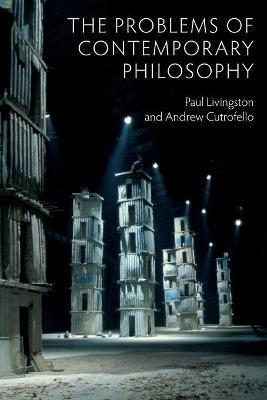
3:16: An important issue in this is about the force of names and laws, an issue Plato and Wittgenstein grappled with (and a whole load of philosophers in between and since of course!) So how do you characterize this issue , how do Plato’s and Wittgenstein’s interventions help and where do you stand? Is your Wittgenstein Kripke’s and what do you mean when you say that ‘ the remnants of the tradition… ‘continental’ philosophy are today converging on precisely this logico-political problem of the nomothesis ’…?
PL: The point here is to some extent a deconstructive one. There is a problem – of which we’re of course increasingly aware, though we so far mostly lack the means to know how to respond to it – about the foundations of authority and the constitution of power, given that we no longer can or want to appeal to theological foundations for it. In fact it’s no different from the problem of violence in general if, as Walter Benjamin says, an act or relationship is violent only in its relationship, direct or indirect, to the ethical or moral dimensions of law and justice.
If for the most part we don’t believe in transcendent foundations for these things anymore, or don’t see how we could ethically base our action on them even if they did exist, we have to deal with the contingency of our arrangements and the fact that they’ve been the cover for so much “legitimated” violence and destruction and suffering. This is not just in order to point out that everything is contingent or to say that no position is more legitimate in itself than any other, but rather, as Levinas and the later Derrida suggest, to deconstruct specific configurations of power or institution in the name of a greater and more unconditional ideal, a more exigent justice. So that’s where it becomes important to try to comprehend how institutions get set up and how they become self-legitimating. And this is, as the tradition has grasped since Plato at least, also deeply a problem about language and about how it originates, what the logic of this original institution of naming or meaning itself is.
Plato and the later Wittgenstein are both people who – for reasons that are, as it were, inversely positioned at opposite ends of the onto-theological tradition in Western philosophy – well aware of this set of problems and concerned about what’s actually at the basis or deepest structural schematism of the possibility and constitution of rules and the meanings of words. And so both of them explicitly develop problems, just on that level, without necessarily giving us ready-made solutions, or at least without minimizing the internal difficulties of the solutions they do suggest. In Wittgenstein this shows up as the problem of what is meant by following a rule or by the “rule by which” we go on, and Kripke’s presentation of the problem is right insofar as it captures that this is a “deep” problem about meaning, about the actual foundations of what we call “meaning the same thing” or indeed meaning anything by words at all. This is the right way to understand the problem, but I don’t find Kripke’s own “solution,” in terms of existent public practices and socially regulated assertibility conditions, at all convincing, since it seems to just transpose the problem to the domain of the community as an existing structure of authority and doesn’t give us any real help with solving it.
3:16: How does Carl Schmitt and his views about ‘sovereignty’ and ‘an exceptional sovereign’ come into all this – and again, isn’t he a warning that there are political dangers in this perspective?
PL: Well, in Politics of Logic I referred to Schmitt because I thought – following here both Agamben and Derrida – that he seems to capture in a clear way the original and founding paradox of sovereignty and its institution. It seemed possible, at least it did to me at the time, to draw out that logic, and point to the original paradox, without endorsing at all Schmitt’s own position on how to respond to it, which is deplorable. Schmitt responds to the founding paradox by way of authoritarianism and political theology, by calling in conservative and absolutist fashion for the need for a strong and ultimately self-justifying sovereign power, whereas for me the point is just about the opposite: to be aware of the founding paradox and even sharpen it, but never to force its closure by violent or decisionist means.
I have to say, though, that the book was finished essentially twelve years ago, and this is one of the things I might not include, or treat the same way, if I were writing it today. In particular I’m less confident today that one can make this kind of “neutral” use of theory from figures like this who are authoritarians or Nazis (of course this question also bears, in a way somewhat differently determined, on Heidegger). When I wrote the book I guess I thought that the main problem or danger to be confronted in terms of global politics was essentially neo-liberalism. Admittedly, Trump and the rise in authoritarianism globally took me by surprise, as it did a lot of people. So obviously there’s more urgency, or the urgency is more evident today, in analyzing the root causes and ideological determinants of authoritarianism and authoritarian “populism.” But in another and deeper way, maybe we’re beginning to see how the problems for the deconstruction of the onto-theological foundations of sovereignty are actually still continuous with those of the critique of political economy.
For example in Michael Sandel’s recent book, The Tyranny of Merit, he shows clearly how, in the US context at least, the populist backlash was driven by resentment over what has been, as he says, the “last acceptable prejudice” of credentialism, or the class privilege of those who can present themselves as capable of technical-bureaucratic administration, essentially the college educated. And I think we can also see many of the authoritarian regimes around the world, for instance Russia and China with their use of the state/technological apparatus of surveillance and control, as essentially expressions of what Žižek has called “authoritarian capitalism”. So we need to think about how these positions are now even more than ever before determined and made possible by global capitalism. But at the same time, more than ever we also still need the study of the real ideological determinants of the identity and psychology of authoritarianism – Arendt’s Eichmann in Jerusalem is still totally indispensable here. In any case we, as philosophers or theorists, must never give up on our commitment to the ideals that we know to be worth struggling for but are globally at stake today: radical and universal equality, democracy, and a true and founded peace.
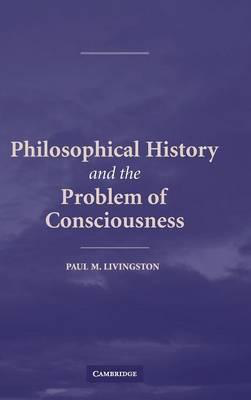
3:16: Why do you say that the development of mathematical logic with Frege, Russell, Godel and Cantor – and the ensuing paradoxes that follow from adopting their formal models - help us think better about finitude, language, politics and truth? Is the point that they help us see that all formal models will not be able to fully represent themselves and therefore the idea of a totality in a formal model, a model of the world by which we mean a model of everything, is impossible? I think what’s surprising is that you see a political effect here alongside ones for truth, finitude and language etc. (And doesn’t it also undermine the idea of language, which brings us back to Badiou’s doubts about language – and also Gabriel’s arguments that deny that language and culture etc exist because they are shaped in the same way as a metaphysical total world, ie the logical impossibility to contain everything?)
PL: I’ll speak to the political connection in a moment, but first I want to say that my point in appealing to Russell’s paradox and Gödel’s proofs -- and maybe better even than those to Tarski’s results – is not to say that a formalism of the whole, or a formalism that will be complete in relation to its intended domain, is impossible. It’s rather, and this is important, to say that if it is complete in this sense it will be inconsistent. This is what I want to get out of the “metalogical” duality which was first made salient to me by my friend, John Bova – that we can think of the “limitative” results as pointing to a necessary incompleteness of these systems, and hence to their incapacity to cover the whole, or – and this is the option that hasn’t really been explored enough – as pointing to inconsistency at the foundations of that very total application.
The latter option or orientation is important, though, in that the idea of what a formal system should be or do in relation to its domain just is that idea of total application to its domain, so if we really want to think what the systems and the formal study of them are showing us, it seems we have to think that maybe these results are not simply failures of formalism, but rather uses of it: that they are actually revealing that these domains are not consistent, or at any rate that they are not decidably so. In that sense my view isn’t at all that formalism doesn’t work in application to the structure of the world as a whole: it’s rather that formalism is exactly showing us that structure, through these very metalogical results, all of which also appeal to reflexivity in some central way. So I think this matters in relation to the question of perspective or total theory as well. It’s actually a pretty familiar point in analytic philosophy (after, e.g., Nagel, Putnam, Williams et al.) that there’s a problem with “metaphysical realism” in the sense of a total view of the world if that view is or requires a “view from nowhere”. But the problem, for me, is not simply that there can’t be any such view – for example, I don’t see any really good reason to think that fundamental physics couldn’t give us a completely objective and total view of every event that has ever occurred (bracketing concerns about quantum randomness, or maybe just going with a no-collapse view on which the Schrodinger wave dynamics is completely determinate). Or with Wittgenstein in the “Lecture on Ethics,” we could imagine a book in which is written down every fact about every event that has taken or will ever take place, and there is nothing contradictory about that. It’s rather when we pose the question of the placement of the position from which that totality appears within the world – which is a question that, it’s worth noting, any reasonably good formalism can pose for itself -- that we get the problem.
So the reflexive problematic about the limits of formalization becomes a problem about the foundations of sense or meaning or (as e.g. if we follow Tarski’s formulation) about the structure of truth as these exist in the world. But if the second – paradoxico-critical – option is at all a live one, we totally miss this problem if we just conclude that formalism just fails to capture the structure of the world or that the world itself just fails to exist.
Now to politics: I guess one thing to say to justify the application of any of this thinking about formalism and the whole to politics is that it bears on the question of the world, as I’m sure Gabriel would agree, and that so does every “politics” worth thinking about today. So if we deny that the world exists as a whole, and we do so for at least partly formal reasons, this is a gesture with obvious political stakes and implications as to how we do things and think about the meaning and sense of our practices and institutions. But if we rather affirm it as undecidable or not knowably consistent, this is then a different gesture and one that has a different set of implications in practice. For example it implies that we can and should critically interrogate institutions insofar as they assume or practice a logic of totality and consistency, suspecting that decidable consistency and the procedures that enforce it are all to a certain extent illusory and constructed.
At the same time we can start to see the recognition of this formal dynamics of undecidable reflexivity as essential to any positive appeal we can now possibly make to the universal or to what we do in its name, itself. Then the question of the relationship of that appeal to objectivity is as, for example, Wittgenstein seems to suggest in the “Lecture”: that the book that contains all the facts of the world has not a word about ethics, that ethics is essentially left out, but that is not because ethics is “subjective” rather than “objective” or that it is somewhere else, outside the world. Rather, the book contains all the facts – all that is the case – and it doesn’t contain ethics, but there is still ethics in some way as a possibility of thought or life, and this very possibility emerges only from a clear sense of the logical form of the totality of the facts itself . That’s what I think we may have most to think or understand in relation to the possibility of the universal today.
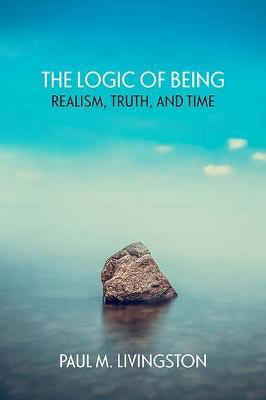
3:16: Building on all this, you’ve turned to aspects of Heidegger’s phenomenology to account for temporal change whilst preserving realism about logic and truth. Can you sketch for us the salient points of this?
PL: Well, we’ve known since Plato – or really since Parmenides – that there’s some kind of problem between truth and temporal change, between thinking that truth is what is the case, in a formally timeless sense, and that things really do change and become different. To me, Heidegger’s radical gesture here (though it certainly isn’t without precedent, both in the Western tradition and in, for example, Indian Buddhist thought) is just to insist that there is no being or becoming that is completely outside time, or at any rate to refuse to ground temporal change or its sense in some assumed standing permanence outside of temporal determination. And doing this implies, phenomenologically and logically, that one has to reconsider the structure of temporal becoming or of “given” time itself.
In Being and Time , Heidegger tries to do that in terms of a fundamental ontology of Dasein and its relation to authenticity and death, but I find that less useful than what he does with it later on, when he tries to deepen this structure into an understanding of temporal becoming that relates it more basically to truth as unconcealment and to the sources of sense in an objective way, and where Dasein itself is relatively secondary or derived. So in The Logic of Being , my question was really just that: how and whether we could think time and the foundations of sense both in a completely objective way, without giving any ground whatsoever to an idea of sense as rooted in an extra-temporal domain or an idea of time as grounded ultimately in subjectivity or human consciousness.
Both of these – Platonism about sense and subjectivism about time – are of course traps into which Husserl himself falls, as Heidegger is well aware, and tries strenuously to break out of, though I think ultimately he too doesn’t go far enough in recognizing the undecidability of the underlying logic of temporal becoming which we ultimately have to affirm if we want to go all the way to thinking ontological difference.
3:16: You defend a realism about time, being and their relationship, one that doesn’t depend on human minds in any way. But doesn’t Heidegger’s phenomenology (and Husserl’s) give away truth ( via Brandom-like inferentialism) even though he wants to keep direct realism about representation – so how can he be helpful to you, in particular your idea of ‘unconcealment’? Does truth and objectivity have a paradoxical structure in this approach, which I take is your approach?
PL: On giving away truth, no. I don’t agree with Brandom that Heidegger is in any important sense an inferentialist – at least not after Being and Time – so that’s one point at which a lot more would have to be said. But to Heidegger as well, not at all: I mean, I don’t think truth as unconcealment means anything like what the social pragmatists think it means, e.g. something like regularities or norms of “our” practices. I think, phenomenologically and basically, and a lot of texts could be cited to make this case, that it rather means what it seems to: the appearance in truth of phenomena that do so appear, and do so as objectively and mind-independently as you like. So this is in itself a realist idea, and the thought that things can indeed so appear as a matter of their sense or objective mode of presentation is also a deeply realist claim, as we see also in Frege. It’s not primarily a linguistic idea of truth – and this is also why Heidegger’s idea is useful in supplementing the understanding of truth we have from the analytic tradition, which gives us a great sense of linguistic truth but has not said very much or gone very deeply into the conditions of truth that aren’t reflected in a formalization of propositions alone.
I don’t see why getting the phenomenological point about appearance right, though, has to involve weakening or giving up an underlying realism in the sense of determination independently of our minds, consciousness, interests, or practices (etc.) As for paradox, yes: something that emerges from the formalization taken the way that I’m suggesting taking it is that truth, both on the linguistic and non-linguistic sides, has a “deep” structure of paradox and that this also, because of their phenomenological relationships characterizes the ultimate structures of sense and time. Of course the idea of a close connection between time and paradox is itself as old as Parmenides and Zeno, so maybe there is no real surprise there. It doesn’t mean necessarily that every truth or every phenomenon is deeply and in itself paradoxical, but just that when we go toward theorizing their ultimate unifying structure, we wind up with underlying formal paradoxes in each case, having to do with reflexivity and the points at which that total theory is itself reflected.
For example with Tarski, working just on linguistic and propositional truth, you get the demonstration that – essentially because of the Liar sentence and related phenomena – any total formalization of truth for a language in that language itself will (assuming that the language has a certain minimal degree of expressive power) produce a contradiction. In Heidegger, as I argued following Priest, the paradoxical structure most deeply takes the form of a set of implications of ontological difference: that Being is not an entity, but still must be an object of reference and thought if we are going to do anything with it at all.
3:16: So how would you summarise your sense of sense, realism and ontological difference? Along with Wittgenstein, Frege and Heidegger, as we’ve seen, you also reference Michael Dummett’s formulation of realism don’t you?
PL: Yes. There are a lot of formalisms of “realism” and “anti-realism” out there, but I like Dummett’s best because it understands realism or a realistic attitude toward a specific domain as consisting in the adoption of bivalence or acceptance of the law of excluded middle for propositions about that domain. So that, on this formulation, semantically speaking, realism is a matter of the objective determination of claims as either true or false, tertium non datur . This is good both because it brings in the structure of truth centrally and explicitly, and because it isn’t in any sense a formulation in terms of the opposition between “subjects” and “objects” or the “mind-dependence” or “independence” of things. Rather than presupposing that kind of dichotomy, I find it much more useful to think about it in Dummett’s way where we are essentially considering whether there is always a way that sense is determined by us through the contingency of our practices or our abilities – which is to allow that truth goes only as far as we have determined or are in an idealized way capable of determining given our epistemic capacities (the anti-realist view) – or to refuse any such picture and say truth is determined just by the way things are and that sense goes as far as this.
Of course Dummett himself most often uses that framework to argue for anti-realism, and I usually want to go the other way. Another thing that this formulation makes clearer, though Dummett doesn’t ever say this clearly or only touches on it at a couple of places, is that realism in this sense isn’t incompatible at all with paradox or contradiction, so we can actually think coherently about any particular domain or about the world as a whole that the law of excluded middle obtains but that the law of noncontradiction doesn’t. And so we can get from this what is effectively again a realism about paradox and paradoxical structure, and if the world is contradictory as a whole we can think about that in a realist way. But another, deeper implication – that I think I’ve become clearer on in the past few years – is that even if we don’t ultimately want to maintain that or indeed maintain or have any view about the world “as a whole”, realism is methodologically useful, or even indispensable, in getting us to the reasons (and I mean as much ethical and practical reasons) why not.
For example in the Madhyamaka context, for Nāgārjuna, with the use of the negative tetralemma we wind up rejecting all views about the world and (say) the question of its beginning, including the contradictory and non-bivalent ones (that it both has and lacks a beginning, and that it neither has nor lacks a beginning). But we only get there by considering each view and seeing that together they are jointly absolutely exhaustive, so that the tetralemma works now as a kind of “principle of excluded fifth” to allow us to ultimately reject the whole level of “ordinary” truth. This importantly requires though – at least I would argue – that we maintain up until the rejection what is basically a realism about the space of options that we’re considering, and especially that we don’t reject them too soon, as we tend to do so often today, by reference to some relatively superficial fact or claim about our minds or conventions or social practices, as if we could just uncritically be realist about those while treating what they seem to produce as unreal or constructed. So in that sense, both honesty and even the real ethical or soteriological benefit of the logical methods here require that we maintain realism all the way up the logical ladder, to the point where it kicks itself away.
3:16: Politically, why do you think that because formal systems are always inconsistent they have to be unstable politically? Surely a political system like North Korea is as stable as can be even though it’s inconsistent?
PL: Well, again, in Politics of Logic I don’t mean to be saying anything about specific nations or constituted political regimes, except to contribute to the logical deconstruction of the conceptual and practical foundations of any and every state sovereignty. So I don’t have anything special to say about North Korea. The problem is more about understanding the real conditions, including media and technological ones, that still allow the state form to be ideologically effective on a global level and even, more and more, to consolidate power in an absolutist or totalitarian fashion. And understanding how these conditions depend on suppressing or obscuring the more basic structuring contradictions of that global situation. So that’s where I guess I would want to locate the inconsistencies that I’m talking about or that I think are relevant, at least those that are relevant to us today.
3:16: And finally, for the readers here at 3:16, are there five books other than your own that you can recommend that will take us further into your philosophical world?
PL: Yes.
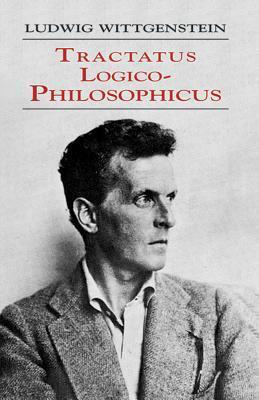
Well, of course, as I maintain what Badiou would call a “fidelity” here and I also think of him as more indispensable than any other theorist to understanding our contemporary situation, Wittgenstein: both the Tractatus
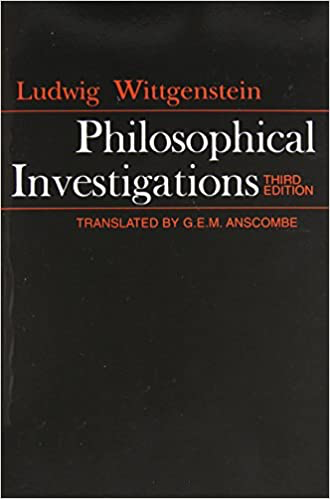
and the Investigations , which give us help with this understanding in radically different but I think ultimately complementary ways.
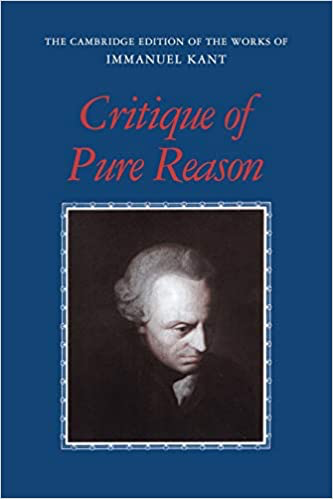
Kant’s Critique of Pure Reason : always a good read, and, again, at the foundation of so much of what we have to think critically today, especially in relation to the logic of the ideal and the dialectic of illusion.
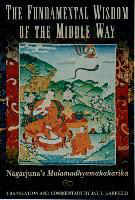
And what have become indispensable over the last few years to me and to thinking about logic and its implications for ethics and everything else we need to think about today as philosophers, but from a quite different historical context than most of us in the USA are used to, Nāgārjuna’s’s most centrally logical works (not, I would say, “metaphysical” though): first, of course, the Mūlamadhyamakakārikā ( Fundamental Verses )

but also and in a way just as deeply the Vigrahavyavartani (Dispeller of Disputes) where he engages in his own reflexive critique around the issues of logic and language as an indication of the universality of emptiness. That’s five. Thanks to everyone for reading this far!
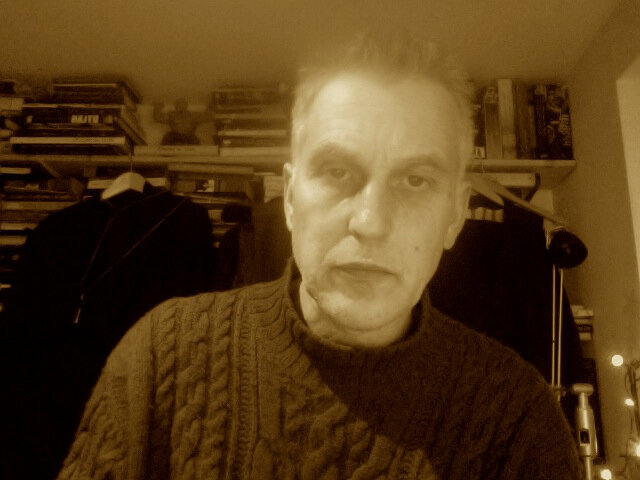
ABOUT THE INTERVIEWER
Richard Marshall is biding his time.
Buy his second book here or his first book here to keep him biding!
End Time series: the themes
Huw Price's Flickering Shadows series.
Steven DeLay's Finding meaning series
Josef Mitterer's The Beyond of Philosophy serialised
NEW: Art from 3:16am Exhibition - details here